ALL OF US STRANGERS (2023)
A writer drawn back to his childhood home enters into a relationship with a mysterious neighbour as he then discovers his dead parents appear to be living just as they were on the day they died, 30 years prior.
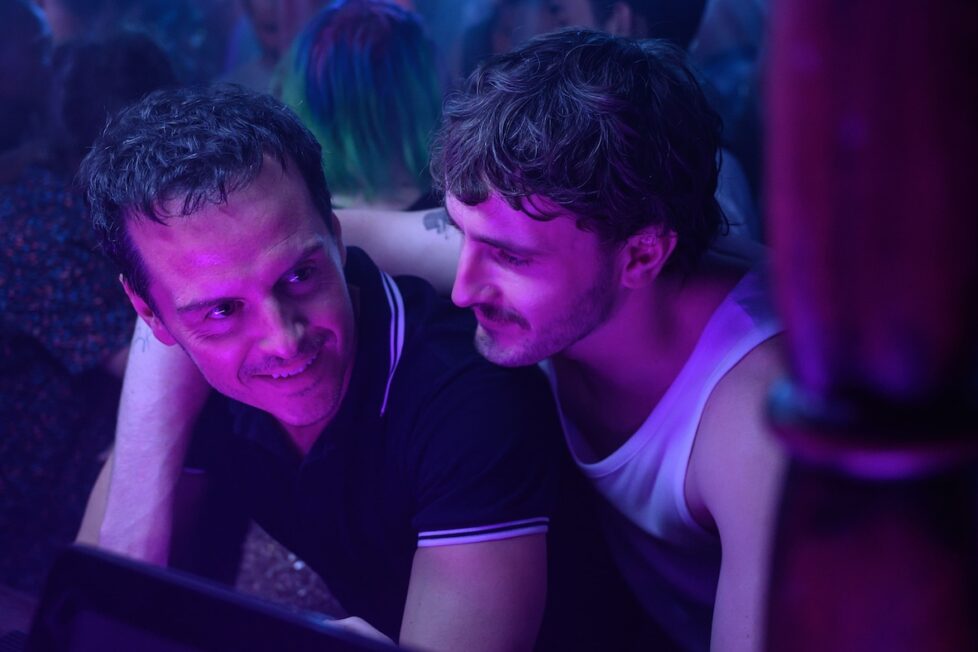
A writer drawn back to his childhood home enters into a relationship with a mysterious neighbour as he then discovers his dead parents appear to be living just as they were on the day they died, 30 years prior.


Among the most profound and touching of films in recent years, All of Us Strangers weaves a harrowing tale of queer love; exploring lives unlived and the bittersweet truth that time with loved ones is precious and finite.
Written and directed by Andrew Haigh (45 Years), All of Us Strangers is based on Taichi Yamada’s 1987 novel Strangers, but changes the protagonist’s sexuality and relocates the story from Tokyo to contemporary London. While not strictly a ghost story or a time travel film, the film unfolds like a dramatisation of a dream from which one can’t fully awaken.
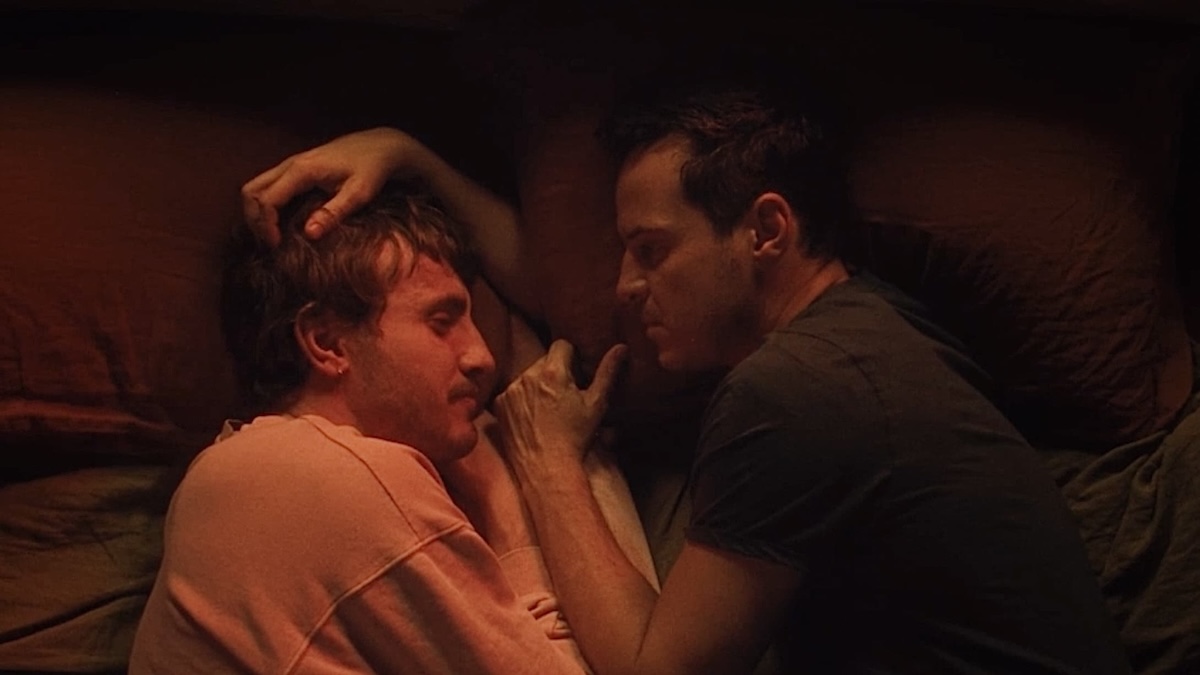
In a mostly empty apartment block, lonely screenwriter Adam (Andrew Scott) exists in the echoes of his past. Immersed in the music of his childhood, he remains disconnected from the modern world around him. But after a fire alarm goes off, Adam meets his flirty neighbour Harry (Paul Mescal), and the pair embark on a tender romantic relationship. Harry’s a self-assured millennial, masking his own alienation with a facade of brazenness and hedonism. Adam, on the other hand, is burdened by years of insecurity and discomfort in his own body, a lingering effect of being raised during the AIDS crisis. However, despite their contrasting personalities and past heartaches, they find a glimmer of hope for a future together.
Scott and Mescal’s chemistry together is undeniable. Both Irish actors are committed to the tenderness between Adam and Harry, two lonely men desperate for intimacy. All of Us Strangers concentrates on the small touches between the couple instead of the rough urges often depicted in queer cinema. And while their sex scenes are graphic, they never feel gratuitous, and it’s refreshing to see two men be allowed to be romantic in the bedroom on the big screen.
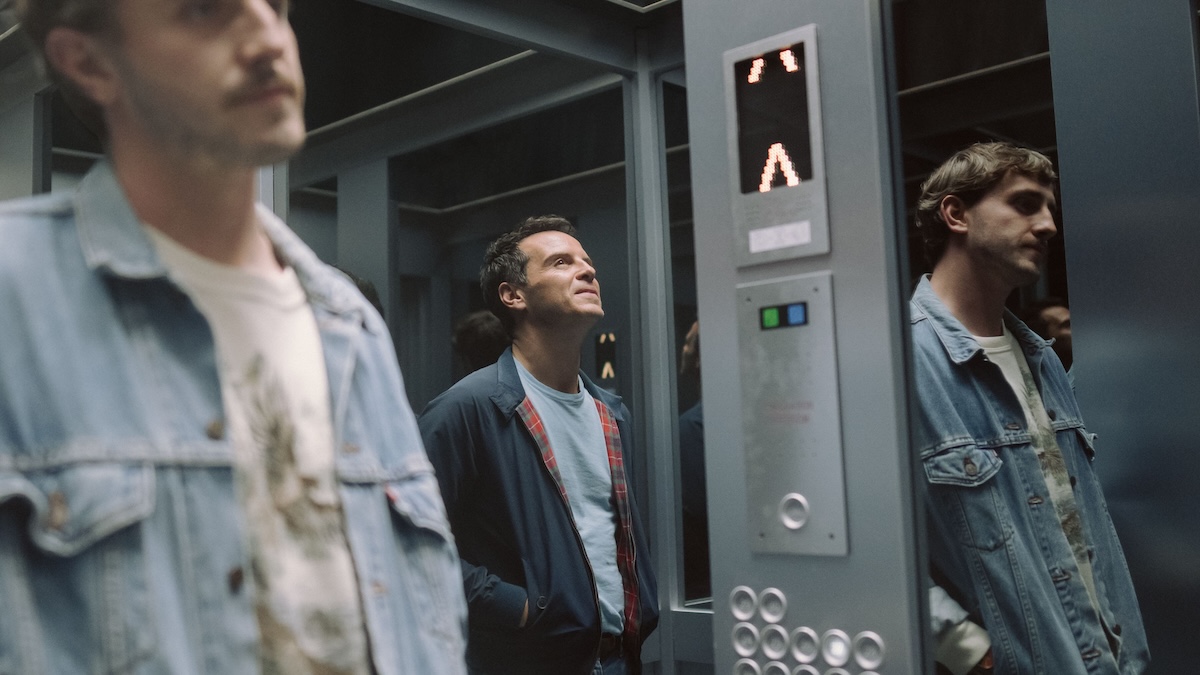
All of Us Strangers delves into grief through the lens of magical realism, interwoven with a romantic thread. Seeking inspiration for his next script, Adam returns to his childhood home in suburban Croydon (actually filmed in director Haigh’s own childhood home). To his surprise, inside he finds his mother (Claire Foy) and father (Jamie Bell) seemingly alive and well, the house frozen in time since their passing decades ago. The 1980’s decor remains untouched and an Erasure poster still hangs on Adam’s bedroom wall, creating an unsettling yet poignant tableau.
This encounter with his parents, decades after they died, sparks in Adam a touching reflection on how they’d react to his sexuality. While the tragic reality of their drunk driving accident leaves the night of their loss unalterable, he discovers solace in allowing them to witness him as a thriving gay adult. This reunion echoes the yearnings of many people, carrying the weight of a parental acceptance never achieved in life.
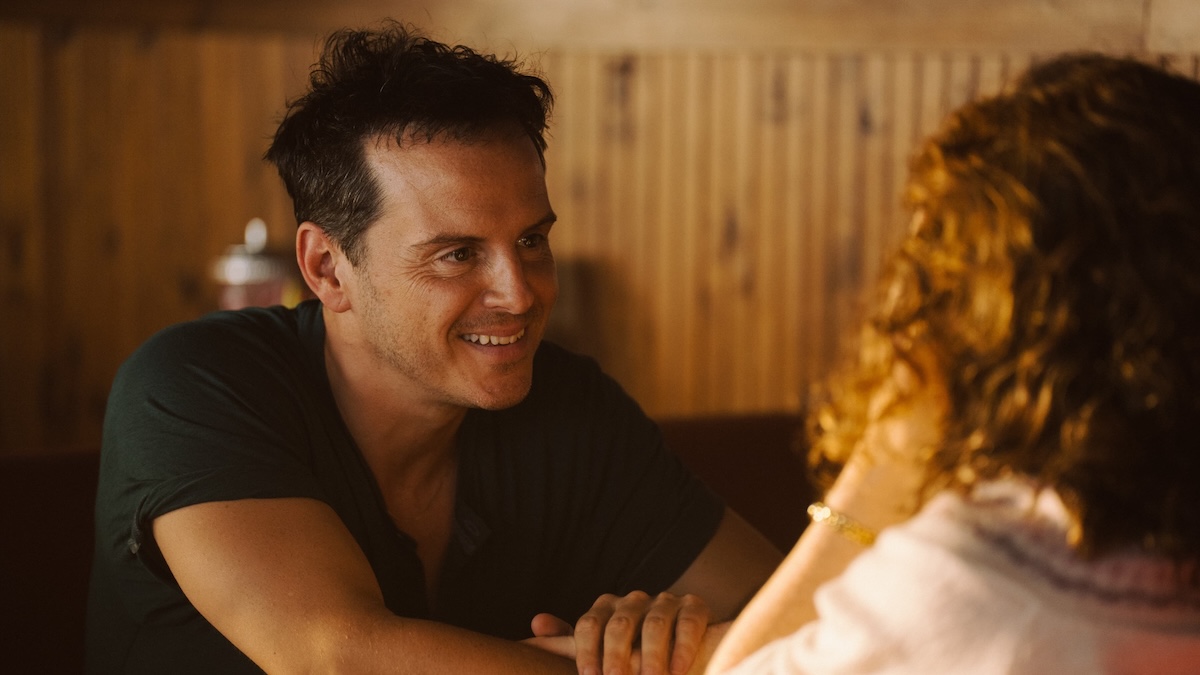
Despite good intentions, an awkward conversation arises as Adam confronts his sexuality with his mother. Her anxieties about AIDS and his potential isolation clash with his experiences of school bullying and adolescent discomfort. While their limitations, rooted in traditional mindsets, create tension, the interaction fosters healing. Although harrowing, these conversations are healing and offer hope to anyone going through the same struggles.
All of Us Strangers isn’t particularly concerned with explaining how Adam can be sitting in his parents’ kitchen years after their deaths. Audiences will have their theories about the film’s central phenomena, but writer-director Haigh smartly keeps many threads ambiguous and allows us to bring our own interpretations to what unfolds.
Though firmly centred on the queer experience and those who grieve a lost childhood, All of Us Strangers resonates as a universal tale. We all carry “what ifs” that time can’t mend and people we crave more time with who now aren’t with us. It captures the introspective conversations many of us have in our heads with loved ones, past and present, trying to rewrite or relive specific memories.
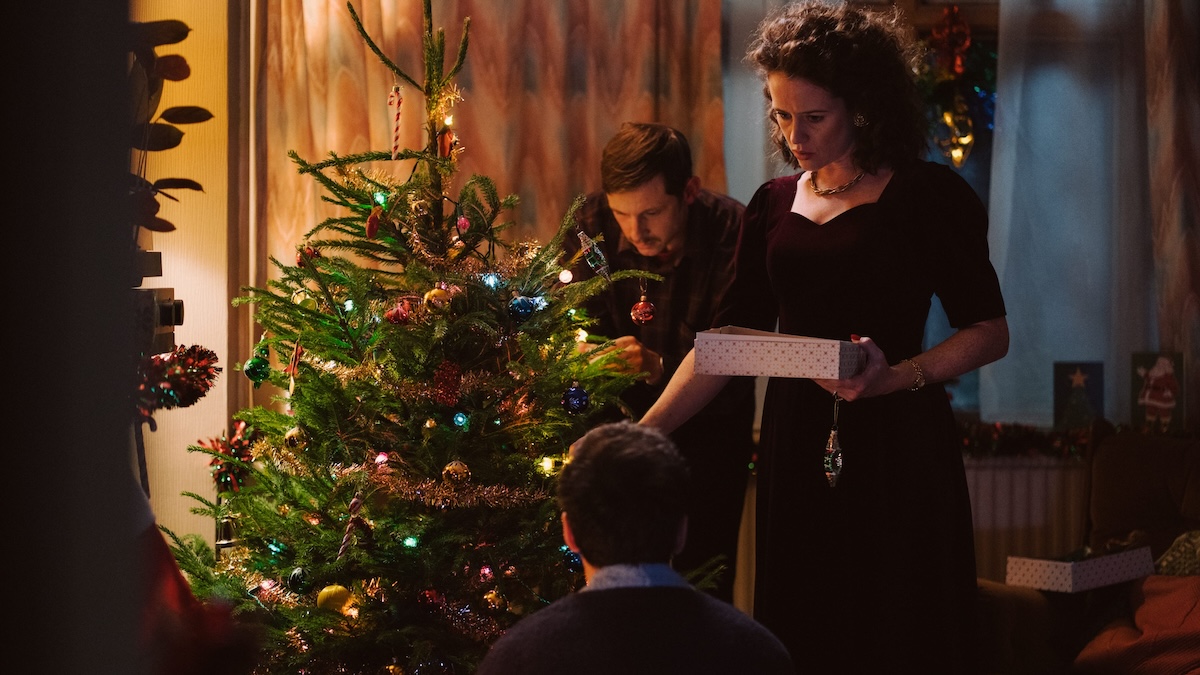
Lacking a defined setting, All of Us Strangers never feels real. James Ramsay’s cinematography creates a dreamy environment, often showcasing characters through reflections on windows and under the muted lighting of the London underground. As the narrative progresses, timelines blur, and the distinction between genuine events and the fragmented perceptions of an unreliable narrator becomes increasingly ambiguous.
Scott and Mescal give career-best performances as two lovers clinging onto each other in an empty London apartment block. There are so many emotions and generational trauma in just a glance between the pair. Scott’s physical performance around Foy and Bell, like a child awoken from a bad dream, is extraordinary. With each visit to his childhood home, he visibly regresses in age, culminating in slipping on his childhood Christmas pyjamas before bed. Equally compelling is Jamie Bell’s performance as a kind father overwhelmed by the task of comforting his adult child, solidifying his place as one of the most underrated British actors.
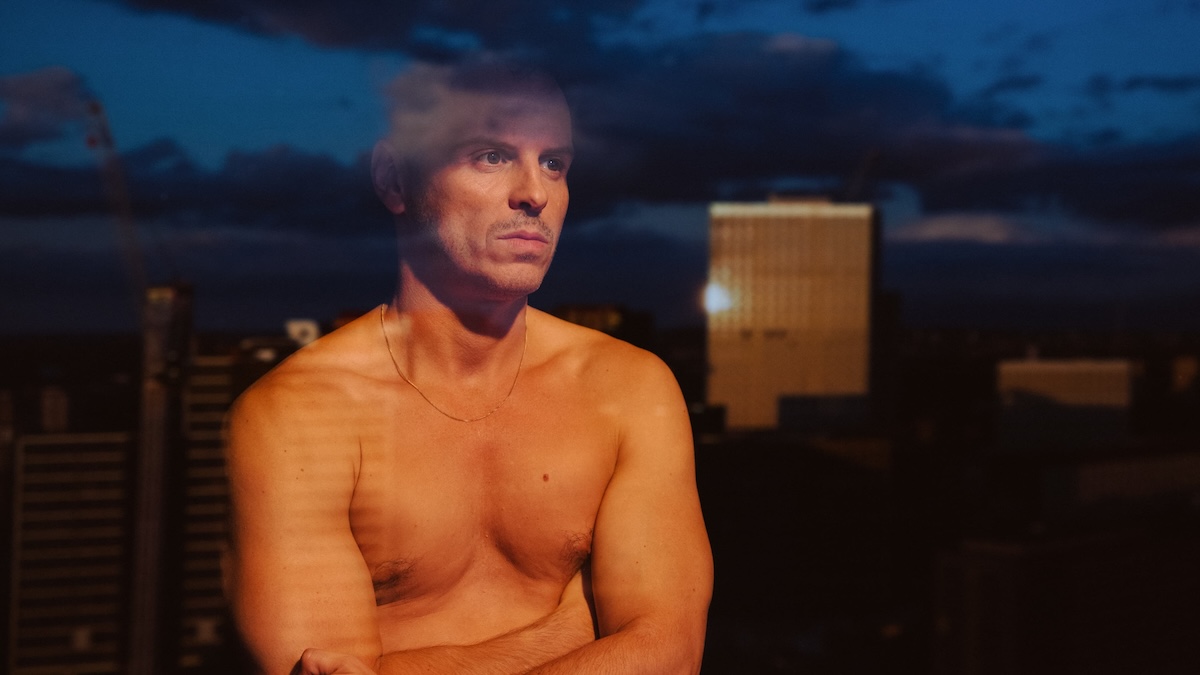
Mescal, as his portrayal in Aftersun (2022) also demonstrated, can masterfully balance charm and trauma. It’s perplexing that the Academy overlooked both actors at this year’s Oscars, while the BAFTAs nominated rising star Mescal but not Scott. A single tearful glance from either actor evokes more emotion than pages of dialogue could ever express.
Watching All of Us Strangers without any prior knowledge of the plot or ending is highly recommended. The film boasts one of the most devastating final half-hours in recent cinema, as the subtle writing and performances combine to deliver a gut-wrenching climax, leaving audiences feeling like they’ve been stabbed in the chest.
All of Us Strangers is a hypnotic study of grief, childhood trauma, and redemption through love. Is it a ghost story, a heartwarming love story, or a poignant metaphor for forgiveness? Regardless, it’s undeniably a powerful and moving film.
UK • USA | 2023 | 105 MINUTES | 2.39:1 | COLOUR | ENGLISH

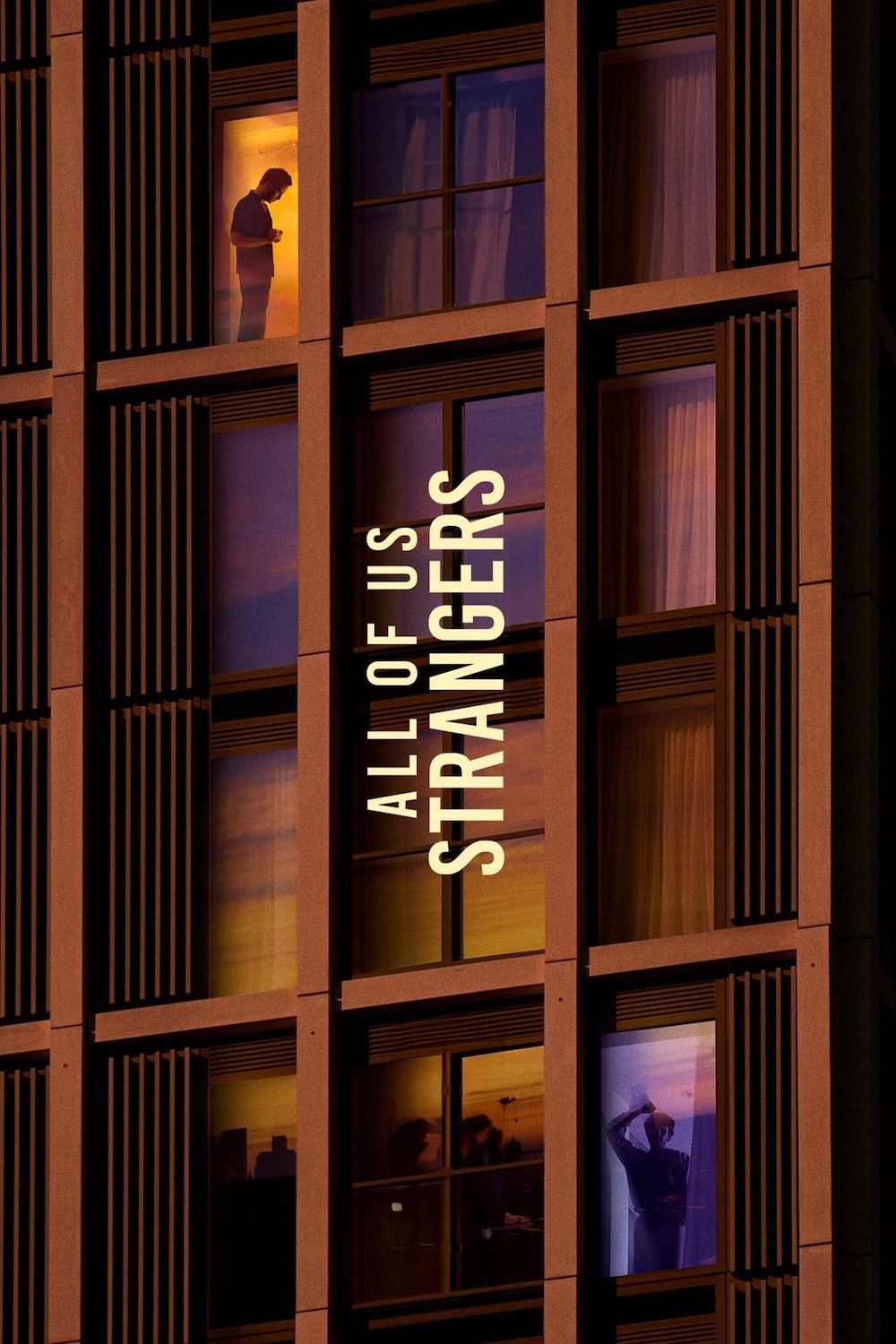
director: Andrew Haigh.
writer: Andrew Haigh (based on the novel ‘Strangers’ by Taichi Yamada).
starring: Andrew Scott, Paul Mescal, Jamie Bell & Claire Foy.
